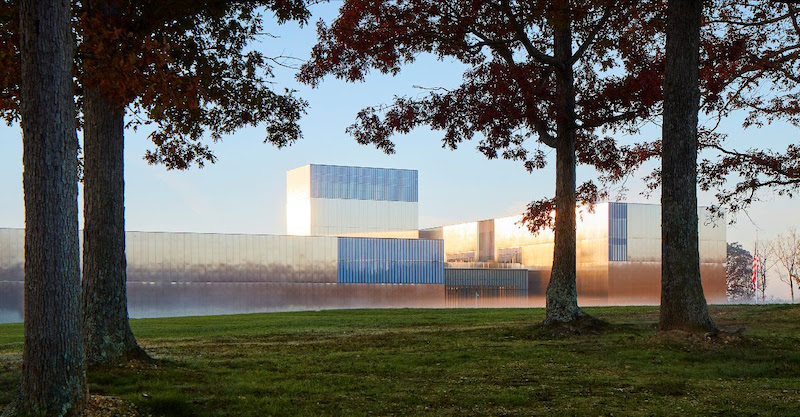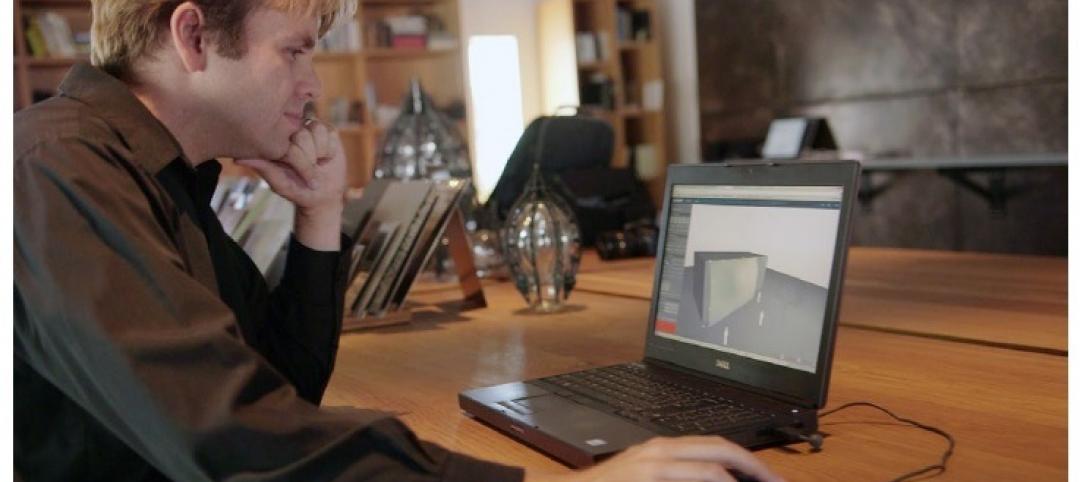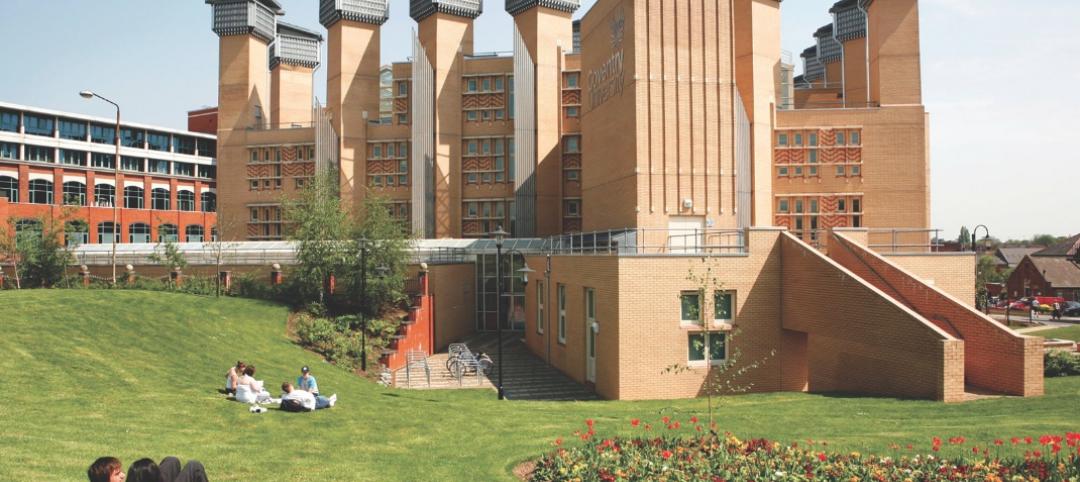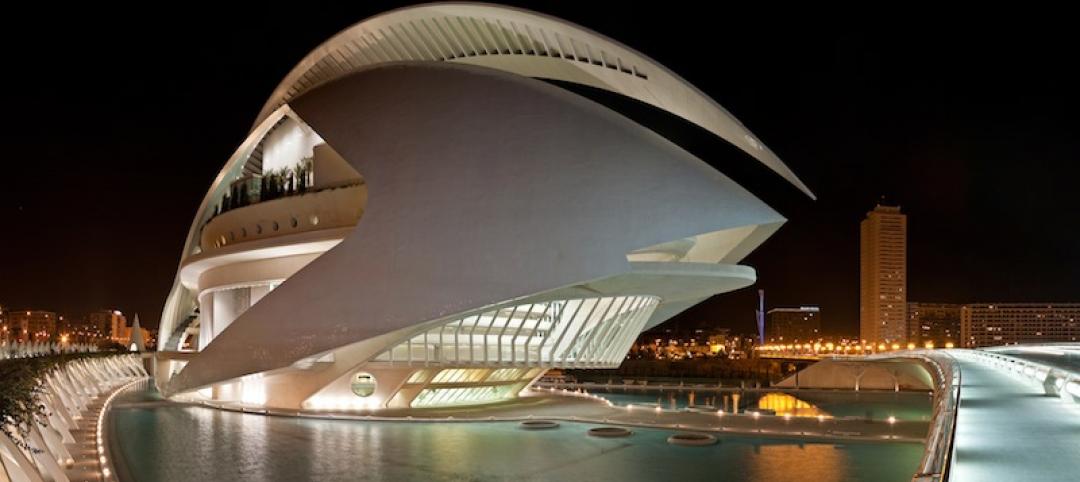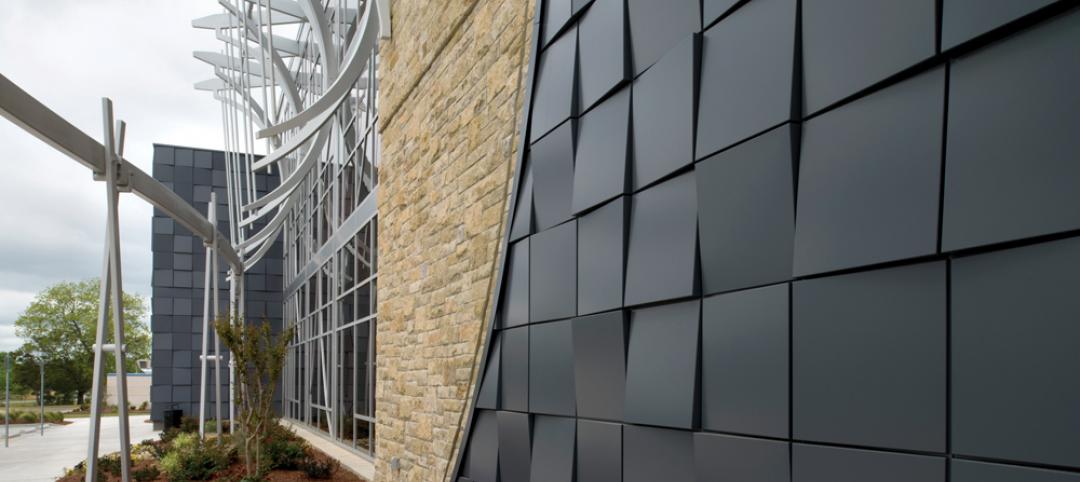The National Museum of the United States Army (NMUSA), a cultural institution that is the first to tell the story of the oldest branch of the United States military, recently completed and opened on Veterans Day.
Located 20 miles outside of Washington, D.C., the facility is designed to serve as a center of education, and the symbolic front door of the Army. The museum focuses on the individual soldier, not battles or wars, to tell a centuries-long narrative of honor, sacrifice, and valor.
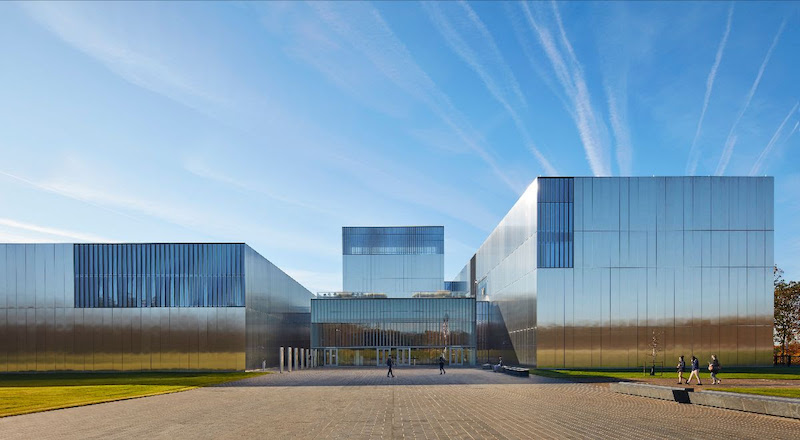
The LEED Silver-certified museum spans 84 acres across the Fort Belvoir Military Installation in Virginia and comprises a series of pavilions for exhibits and special events. The building leverages the site’s natural topography and rests atop a plateau to evoke a sense of monumentality. SOM’s design and planning for the future of the site includes a quiet memorial garden, a parade field and grandstand, and an Army Trail with interpretive stations.
Symbolism is at the core of the museum’s design. The symbolic experience begins with the access road, which offers a glimpse of the stainless steel-clad museum through the tress and across a long meadow. The museum rises to 100 feet at its peak, and its facade is composed of a regular grid of laser-cut stainless steel panels that establish a sense of rigor and discipline that are central to the design. At the corner of each pavilion, recessed glass panels alternate with painted aluminum fins to add a sense of dynamism. The complex lies on a three-foot grid system with every joint and edge of the building falling on each subdivision with precision, meaning the aluminum fins are spaced 18 inches apart to fall exactly on the edges of the panels.
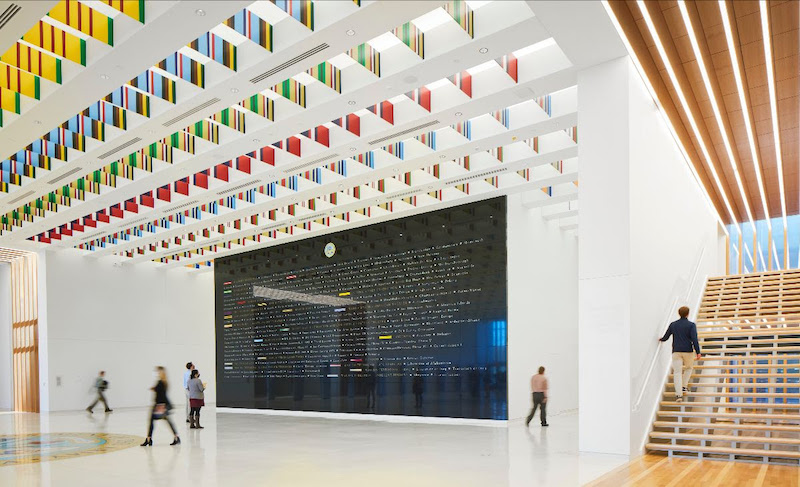
Inside, the symbolism continues with stainless steel pylons sharing individual soldier stories and leading visitors from the promenade, through the vestibule, and into the exhibition hall. The grand lobby, which can be used as an event space, includes the Department of the Army’s emblem inscribed on the terrazzo floor and a black granite wall that lists every campaign from the Army’s history. Above, a coffered ceiling with 22 rows of translucent, laminated glass panels match the colors of the campaign streamers from the Army’s past.
See Also: First rendering of the National Medal of Honor Museum unveiled
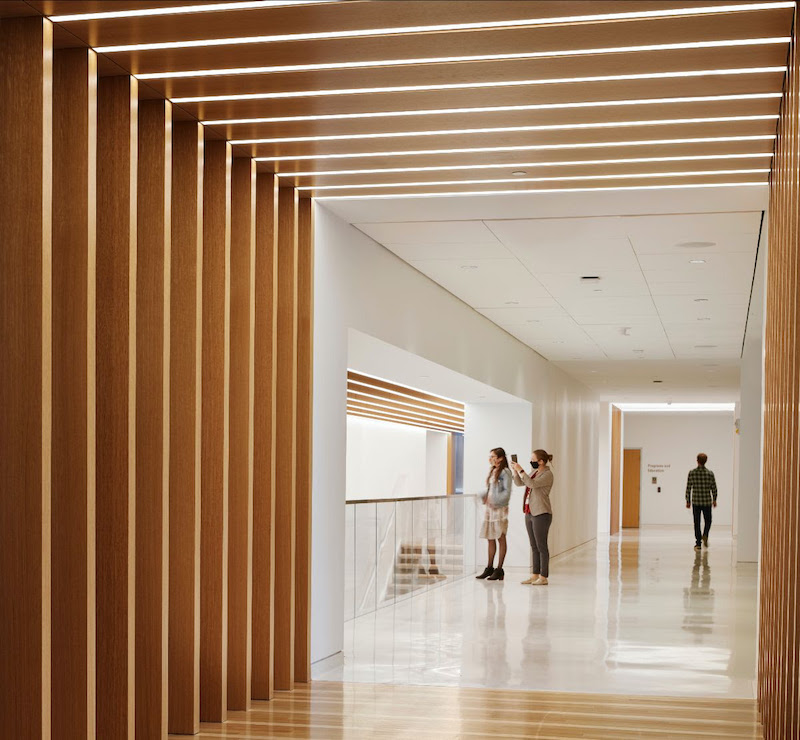
Retail, a cafe, the first of three landscaped terraces, and exhibition spaces including a 300-degree theater surround the lobby. A monumental staircase leads visitors to additional exhibition spaces on the second floor.
Glass and wood thresholds connect each pavilion to signify transitions between spaces and provide views outside. On the third floor a wood-clad Veterans’ Hall serves as an event space supplementing the lobby. The Veterans’ Hall connects to the Medal of Honor Garden. Here, a 10-foot-tall black granite wall is engraved with the names of every medal recipient.
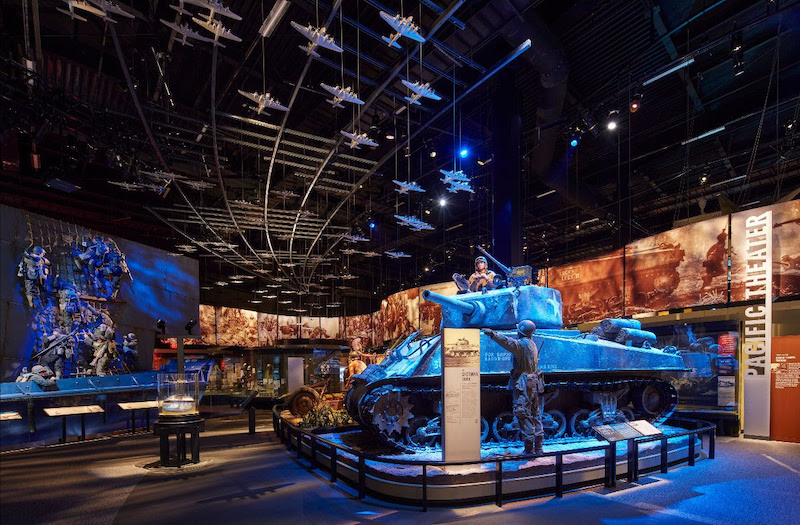
Sustainable features include increased insulation, improved glazing, high-efficiency LED lighting, automatic daylighting controls and occupancy sensors, and a green roof.
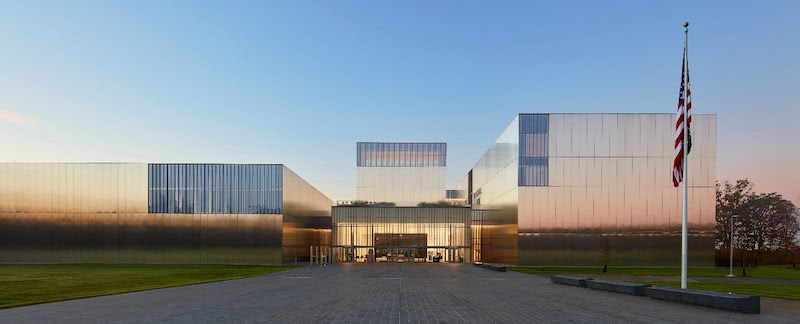
Related Stories
| Jan 28, 2014
Big Ten Conference opens swanky HQ and museum [slideshow]
The new mixed-use headquarters includes a museum, broadcast studios, conference facilities, office spaces, and, oh yeah, a Brazilian steakhouse.
| Jan 13, 2014
Custom exterior fabricator A. Zahner unveils free façade design software for architects
The web-based tool uses the company's factory floor like "a massive rapid prototype machine,” allowing designers to manipulate designs on the fly based on cost and other factors, according to CEO/President Bill Zahner.
| Jan 11, 2014
Getting to net-zero energy with brick masonry construction [AIA course]
When targeting net-zero energy performance, AEC professionals are advised to tackle energy demand first. This AIA course covers brick masonry's role in reducing energy consumption in buildings.
| Dec 30, 2013
Calatrava facing legal action from his home town over crumbling cultural complex
Officials with the city of Valencia, Spain, are blaming Santiago Calatrava for the rapid deterioration of buildings within its City of Arts and Sciences complex.
| Dec 19, 2013
Mastering the art of crowd control and visitor flow in interpretive facilities
To say that visitor facility planning and design is challenging is an understatement. There are many factors that determine the success of a facility. Unfortunately, visitor flow, the way people move and how the facility accommodates those movements, isn’t always specifically considered.
| Dec 13, 2013
Safe and sound: 10 solutions for fire and life safety
From a dual fire-CO detector to an aspiration-sensing fire alarm, BD+C editors present a roundup of new fire and life safety products and technologies.
| Dec 10, 2013
16 great solutions for architects, engineers, and contractors
From a crowd-funded smart shovel to a why-didn’t-someone-do-this-sooner scheme for managing traffic in public restrooms, these ideas are noteworthy for creative problem-solving. Here are some of the most intriguing innovations the BD+C community has brought to our attention this year.
| Nov 27, 2013
BIG's 'oil and vinegar' design wins competition for the Museum of the Human Body [slideshow]
The winning submission by Bjarke Ingels Group (BIG) and A+ Architecture mixes urban pavement and parkland in a flowing, organic plan, like oil and vinegar, explains Bjarke Ingels.
| Nov 27, 2013
Wonder walls: 13 choices for the building envelope
BD+C editors present a roundup of the latest technologies and applications in exterior wall systems, from a tapered metal wall installation in Oklahoma to a textured precast concrete solution in North Carolina.
| Nov 26, 2013
Construction costs rise for 22nd straight month in November
Construction costs in North America rose for the 22nd consecutive month in November as labor costs continued to increase, amid growing industry concern over the tight availability of skilled workers.


